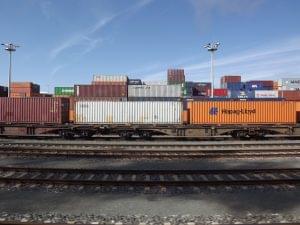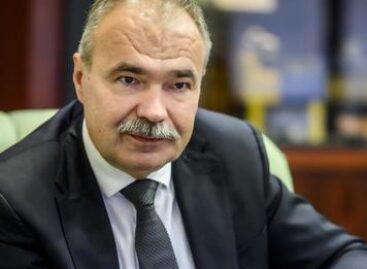Szijjártó: the railway terminal in Bánoslitke will play a major role in alleviating the world food crisis
The railway terminal in Bánoslitke will play a significant role in ensuring the continuity of Ukrainian grain exports, which were interrupted due to the war, and thus in alleviating the world food crisis, Péter Szijjártó, Minister of Foreign Affairs and Trade, emphasized in a press release from the ministry on Tuesday.

(Photo: Pixabay)
At the handover of the center of East-West Intermodal Logistics Zrt., based on the change of railway gauge, the head of the ministry underlined that the investment started when the cooperation between East and West still had a serious perspective, when it seemed that trade traffic between China and Europe could expand without obstacles in the next period. As he said, the project took on a new meaning with the outbreak of the war, its purpose changed in the meantime compared to the original, because currently one of the most important tasks from the point of view of global security is to guarantee the continuity of Ukrainian grain exports, which requires fast and efficient transport routes. He stated: the terminal will accordingly play a huge role in the delivery of grain from Ukraine to various parts of the world. “The capacities of the port of Constanta are limited, the Slovak and Romanian routes are full, and due to the low water levels on the Danube and the Tisza, shipping by ship is not quite predictable,” he pointed out. the most effective route in order to ensure the safety of food supply in far-flung parts of the world,” he declared. Péter Szijjártó reminded that the role of Russia and Ukraine is extremely important in the supply of grain to many countries of the world, including many unstable regions, and the stoppage or decline of exports may even lead to starvation. According to him, this is why it is a huge step that the new center will be able to transfer about 800 tons of grain per hour, and the extensive storage capacities will also ensure that goods from neighboring countries can reach their destination countries. “We are interested in peace in the neighborhood, and we hope that one day this terminal will be able to fulfill its goals conceived in peace,” he said. The minister praised the fact that the most modern transshipment terminal on the entire continent was built in record time, where modern digital solutions support the work, so they can quickly and safely transship four trains with a maximum length of 740 meters at the same time. According to his information, 500 people will work in the center created with an investment of HUF 30 billion, and the capacity will be one million containers per year, twice that of the facility on the border of Belarus and Poland. “We Hungarians can once again show something completely new and unique to the world,” he said, adding that our country has thus returned to the global elite in the logistics sector. The primary function of the terminal in Lusakalitke is to transship incoming rail shipments, which is necessary because, while 1,435-millimetre gauge rails are used in Europe, the 1,520-millimetre gauge is common in Russia and many other Asian countries.
According to János Tálosi, CEO of the investor East-West Intermodal Logisztikai Zrt., Europe’s largest and most modern rail-road logistics center with a green concept has put Hungary back on the rail logistics map. The CEO emphasized that in addition to handling containers, the EWG terminal is capable of transshipping agricultural products such as grain and sunflower oil. After purchasing the necessary equipment, they will be able to transfer up to 15,000 to 20,000 tons of grain from Ukraine per month to other means of transport by rail and road, he added. At the ceremonial handover, the first train carrying Ukrainian agricultural goods, a self-organised shipment of EWG, rolled into the terminal. A total of 1,146 tons of wheat, millet and green peas shipped by Ugrain Trade LLC arrived in 44 twenty-foot containers; the shipment is transported to the Csepel Free Port after transshipment.
MTI
Related news
István Nagy, the government stands by the farmers at this week’s demonstration against Brussels
🎧 Hallgasd a cikket: Lejátszás Szünet Folytatás Leállítás Nyelv: Auto…
Read more >Imre Hubai: one billion cubic meters more water is being retained in the landscape than ever before
🎧 Hallgasd a cikket: Lejátszás Szünet Folytatás Leállítás Nyelv: Auto…
Read more >National Chamber of Agriculture: Eastern European farmer organizations join forces to protest against the European Commission’s proposal
🎧 Hallgasd a cikket: Lejátszás Szünet Folytatás Leállítás Nyelv: Auto…
Read more >Related news
40 secure jobs, sustainable solutions – new BURGER KING® in Csepel
🎧 Hallgasd a cikket: Lejátszás Szünet Folytatás Leállítás Nyelv: Auto…
Read more >








